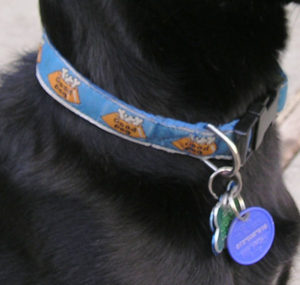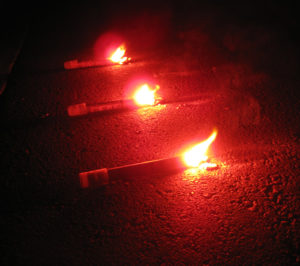Keeping You and Your Pets Safe During Disasters

Natural disasters, whether it is a tornado, flood, hurricane, blizzard, or fire, can be prepared for. When we think of preparing for blizzard, tornado, or hurricane season, we usually just think of the obvious amenities that we can ride the weather out in. But when you are a pet owner, you have extra precautions and preparations that must be attended to. Extra stores of food, water, and emergency first aid are what immediately come to mind. But what are the extra steps to keep you and your pet safe? Here is a quick list of things you can do to assure a safe season.
1. If you can evacuate, do so.
In cases of storms, like hurricanes, it is always in your and your pet’s best interest to heed the state or governmental warning and evacuate. If you cannot do so, you should prepare for what ever is headed for you. You should always prepare extra stores of water, food, and medicines that you and your pet may need.
2. Have an Emergency Radio, Batteries, and a Flashlight.
Emergency radios, extra batteries, and flashlights are all useful for when the power goes out. Keeping up on where the storm is headed can be tricky if you have no way of accessing the internet, television new station, or your phone dies. A flashlight handy with extra compatible batteries can also save you much time and aggravation. Always have them near so when the lights do go out, you know where they are. Battery operated lanterns can also be useful when trying to light a larger area.
 3. Have I.D. tags for your pet that have accurate information including current contact information.
3. Have I.D. tags for your pet that have accurate information including current contact information.
This step is crucial when considering what you should do before a natural disaster. Updating the information on your pet’s tags helps enormously if you and your pet get separated. Even if the search team cannot get ahold of you right away, they can get back to you once communications are restored.
4. Prepare blankets, kitty litter, and peanut butter.
Snowstorms and blizzards can make travel next to or impossible. If you find yourself stuck in your car, first you should alert emergency authorities immediately. But if you have these items in your car you have food, blankets to keep you warm, and if you are stuck in a snowy rut you can try to free your tires by pouring kitty litter by your tires. This will create extra traction and you may be able to free your car.
5. Have space heaters and know how to use them safely.
Small personal heater systems can be useful for short-term heating failures during an emergency. Keep in mind however carbon monoxide poisoning after long-term use can occur. Know how to use space heaters efficiently and read all instructions.
Road side flares are great tools to alert emergency professionals where you are during natural disasters of any kind. Whether you are stranded on the side of the road or on the
roof of a house after flooding, road side flares can be used to call attention to you and your pets location.
7. Know the safest and sturdiest places in your home.
If you do not have a basement or storm cellar, knowing the sturdiest places for you and your pet to hunker down in your home during a tornado can save your life. Accuweather.com writes that bathrooms and closets may be the sturdiest rooms in your home.
 8. Have indicators that you have pets in the house, so firefighters will know to look for them.
8. Have indicators that you have pets in the house, so firefighters will know to look for them.
Stickers that go on windows that indicate how many pets are living in the home are great for first responders. This precaution will help them find and save pets lives if a fire were to break out in the home. Here is a link to one place you can order them.
9. Have medications for you and your pets.
You and your pets may have medical needs that require over the counter or prescription medications. Make sure to have a designated place for these medications that is easy to
get to and find during an emergency. Also, if evacuating or relocating, make sure that you have an adequate amount packed with you.
10. Be safe.
Remember that you and your pet’s safety is what comes first. Hard decisions may be made, but in the long run keeping safe and prepared is what matters.

